Photos: The Most Powerful Storms of the Solar System (original) (raw)
Jupiter's Great Red Spot as Seen by Voyager
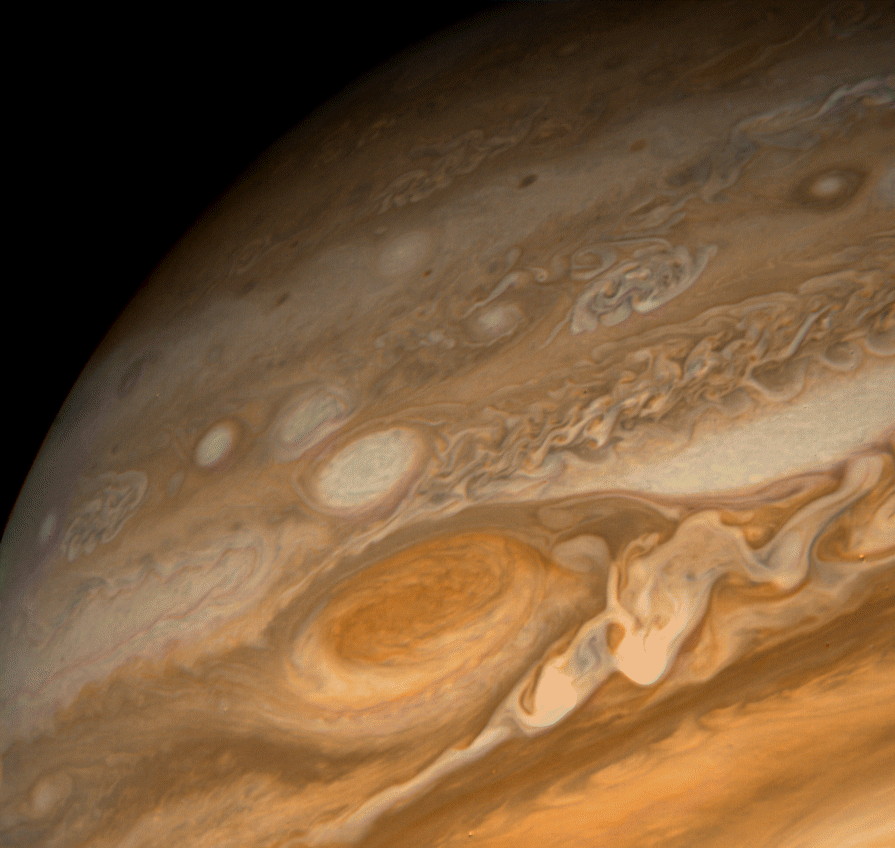
NASA/JPL-Caltech
Close-up of Jupiter's Great Red Spot as seen by a Voyager spacecraft.
Great White Spot on Saturn
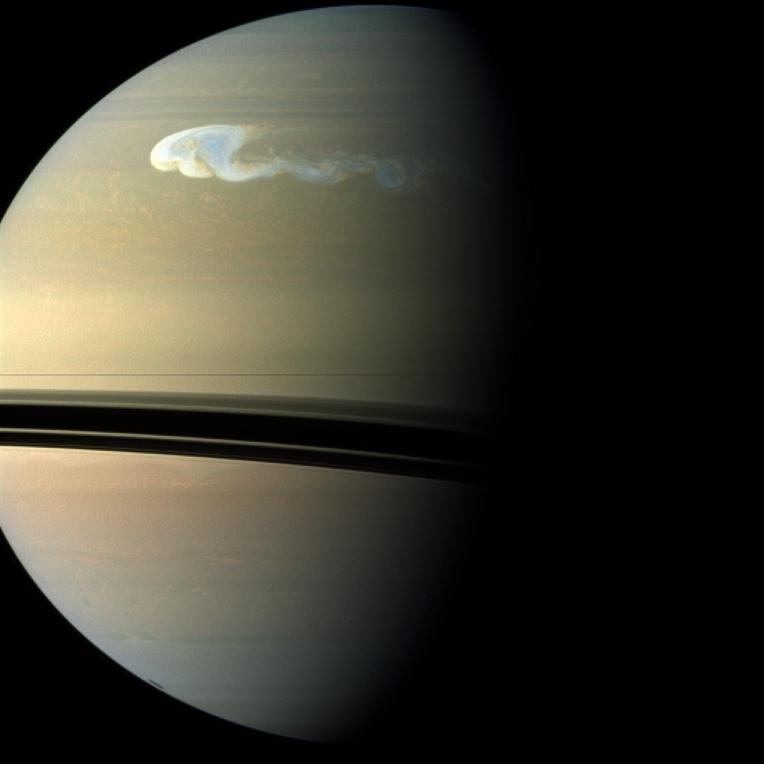
Carolyn Porco and CICLOPS; NASA/JPL-Caltech/SSI
An image of Saturn taken in December 2010 by the Cassini spacecraft shows a storm with a latitudinal and longitudinal extent of 10,000 km and 17,000 km, respectively. The latitudinal extent of the storm’s head is approximately the distance from London to Cape Town. A "tail" emerging from its southern edge extends further eastward.
Hurricane Irene Grows Ominous
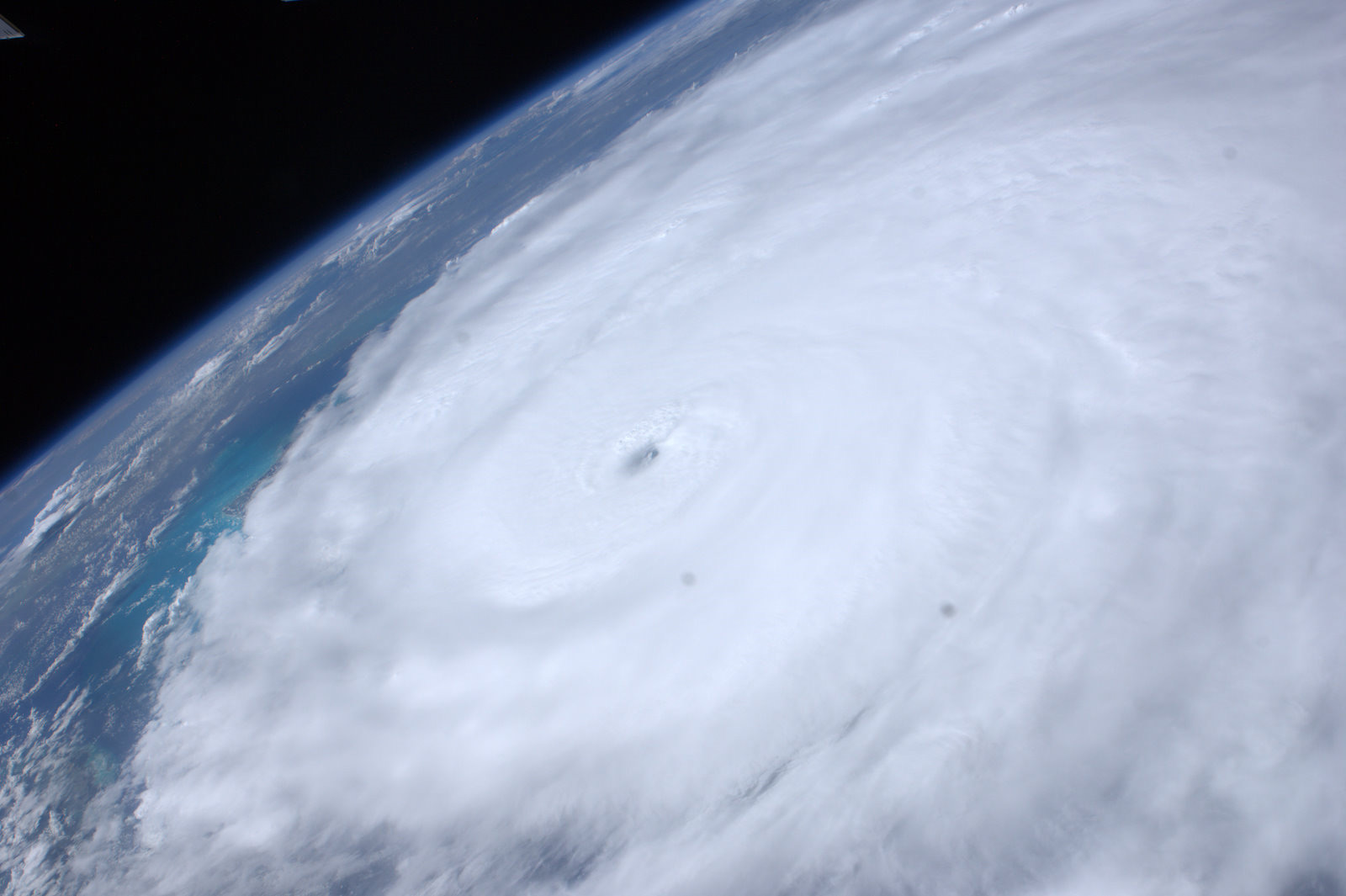
NASA via Ron Garan/@Astro_Ron
Astronaut Ron Garan tweeted this picture of Hurricane Irene from the International Space Station on August 24, 2011: "Ominous view #FromSpace of Hurricane #Irene east of the Bahamas @ 3:14pm EST today. East FL coast is calm b4 storm."
Neptune's Great Dark Spot
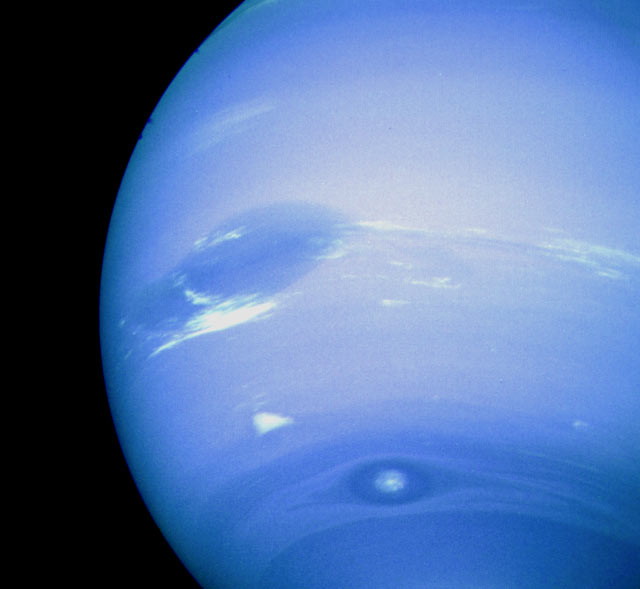
NASA/JPL-Caltech
Neptune's Great Dark Spot, accompanied by white high-altitude clouds, as seen by a Voyager spacecraft.
Saturn's Massive Northern Hurricane
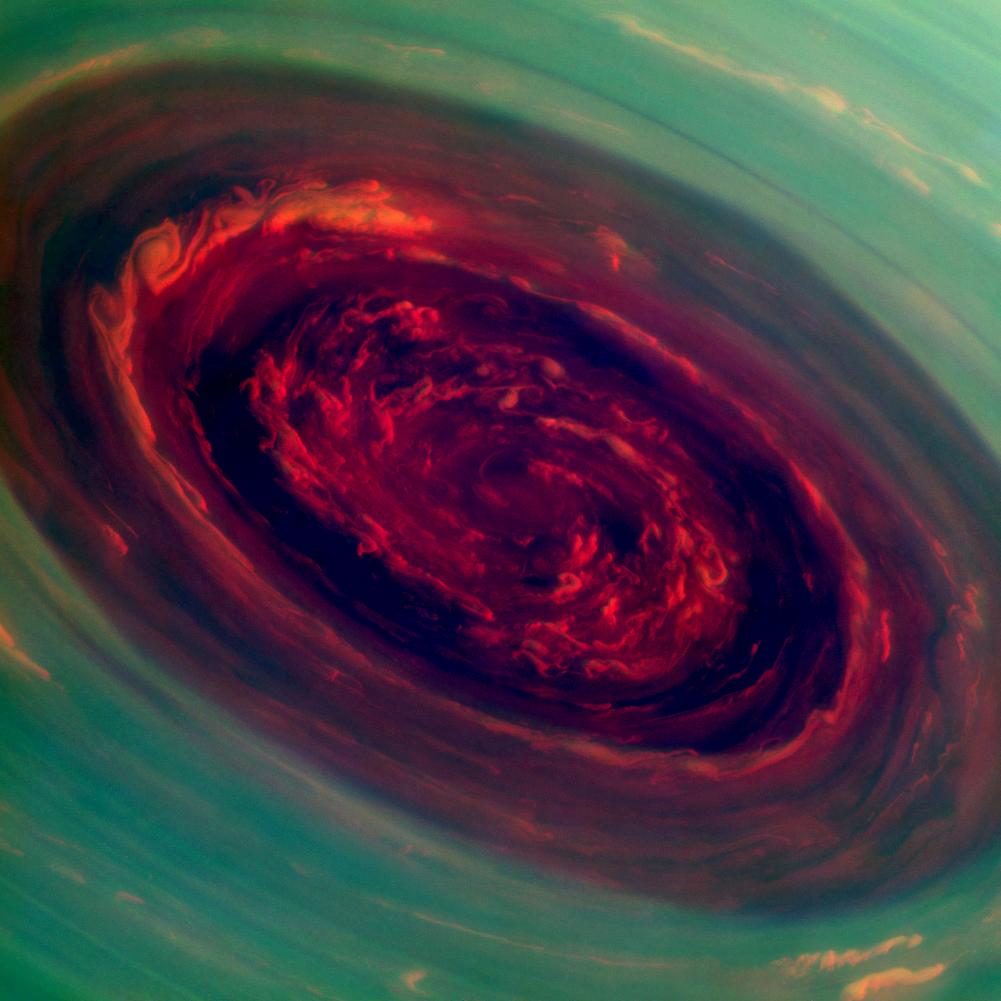
NASA/JPL-Caltech/SSI
The spinning vortex of Saturn's north polar storm resembles a deep red rose surrounded by green foliage in this false-color image from NASA's Cassini spacecraft. The storm's eye is about 1,250 miles (2,000 kilometers) across with cloud speeds as fast as 330 mph (530 kph).
Saturn's North Pole
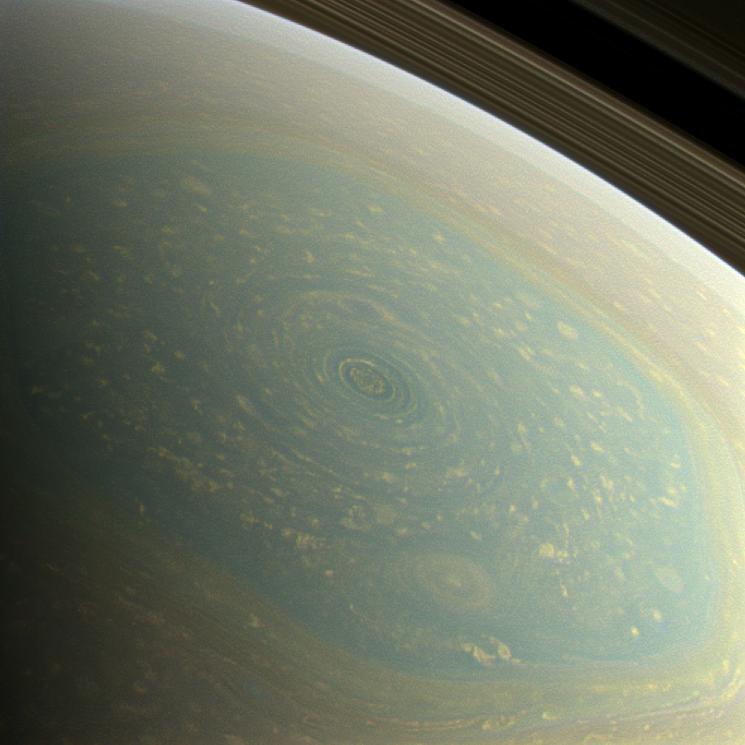
NASA/JPL-Caltech/SSI
The north pole of Saturn, in the fresh light of spring, is revealed in this color image from NASA's Cassini spacecraft.
Saturn's North Pole in Psychedelic Color
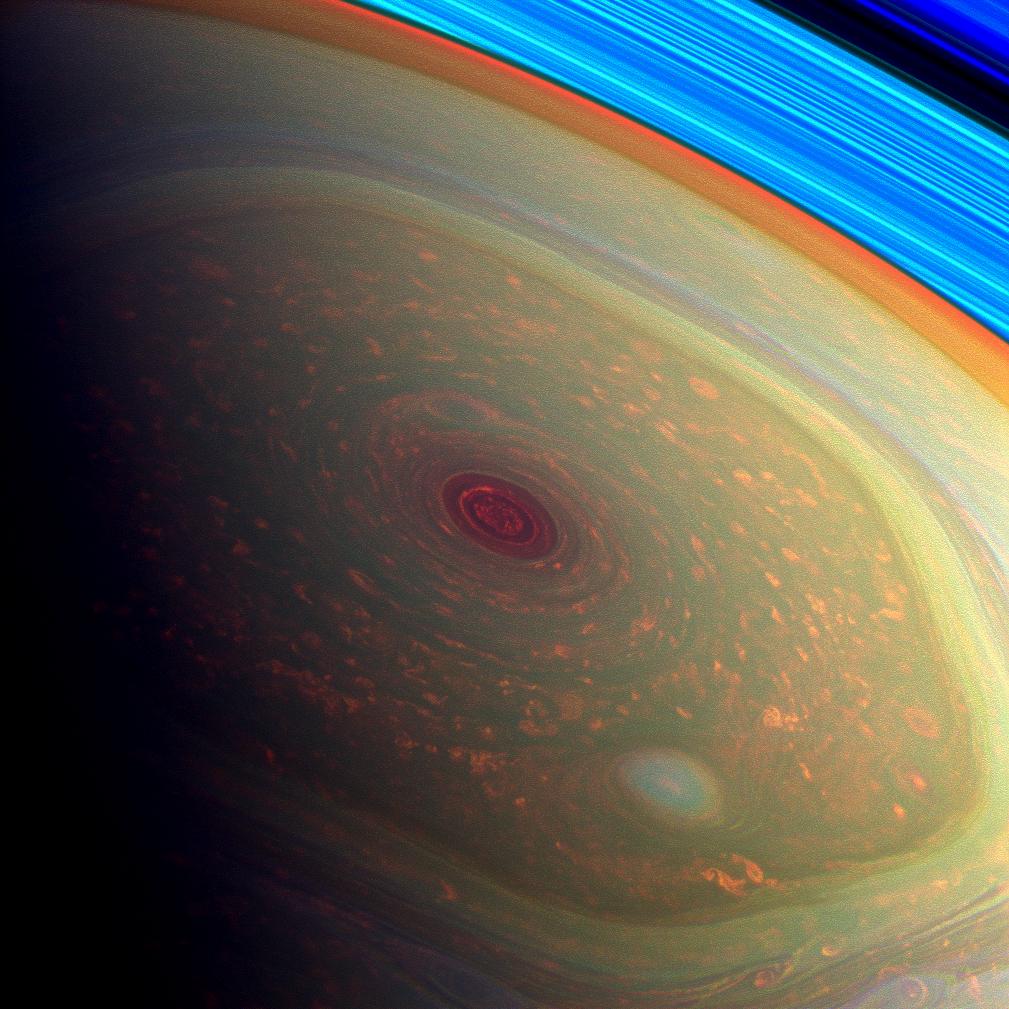
NASA/JPL-Caltech/SSI
This spectacular false-color image from NASA's Cassini mission highlights the storms at Saturn's north pole.
Breaking space news, the latest updates on rocket launches, skywatching events and more!
Bizarre Hexagon Spotted on Saturn
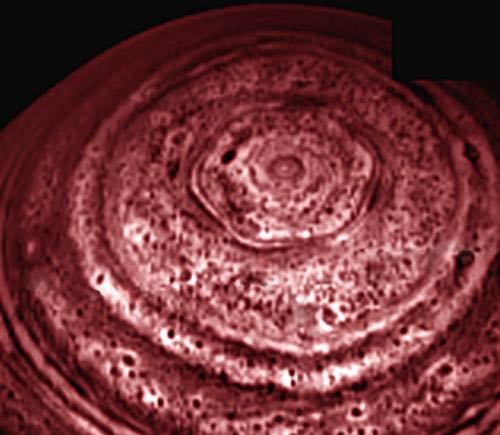
NASA/JPL/University of Arizona
A bizarre six-sided feature encircling the north pole of Saturn near 78 degrees north latitude has been spied by the visual and infrared mapping spectrometer on NASA's Cassini spacecraft.
The Perfect Storm
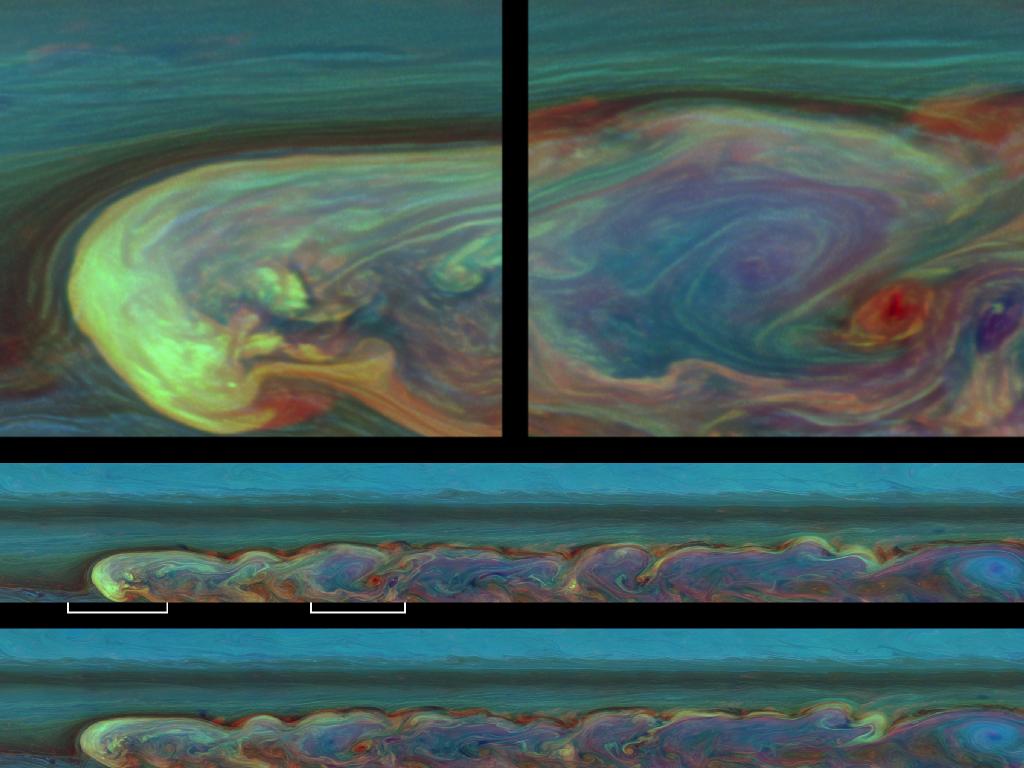
NASA/JPL-Caltech/SSI
Wednesday, July 13, 2011: A huge storm on Saturn has developed from a small spot that appeared 12 weeks earlier in Saturn's northern mid-latitudes. This storm, still active, is the largest and most intense observed on Saturn by NASA’s Voyager or Cassini spacecraft. As seen in these and other Cassini images, the storm encircles the planet — whose circumference at these latitudes is 186,000 miles (300,000 kilometers). From north to south, it covers a distance of about 9,000 miles (15,000 kilometers), which is one-third of the way around the Earth. It encompasses an area of 1.5 billion square miles (4 billion square kilometers), or eight times the surface area of Earth. The frames at top are enlargements from the middle mosaic consisting of 84 separate images.
—Tom Chao
Solar Prominence Sun 'Twister' - Solar Dynamics Observatory
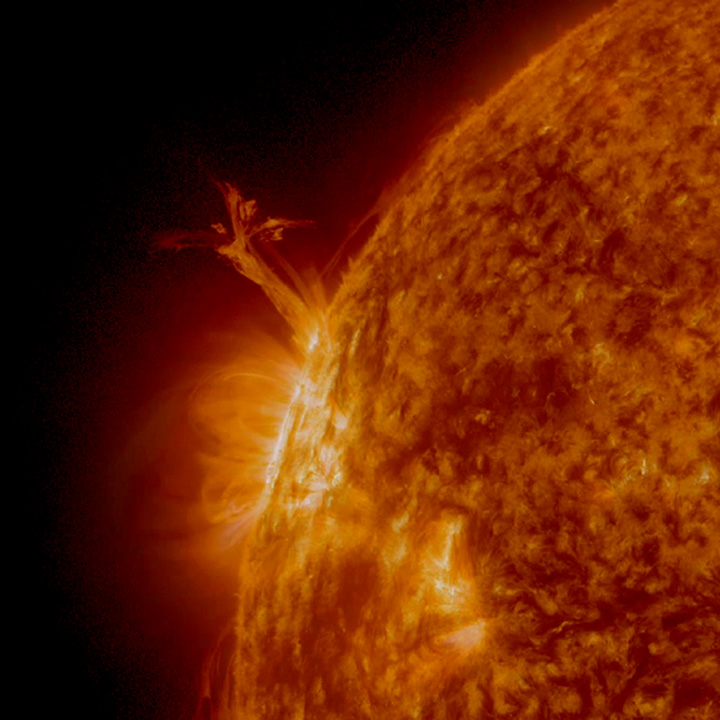
NASA/SDO/GSFC
A stalk-like prominence rose up above the sun, then split into roughly four strands that twisted themselves into a knot and dispersed over a two-hour period (July 12, 2011). NASA's Solar Dynamics Observatory took a video of the sun twister.
Saturn's Weird Hexagon Hotspot
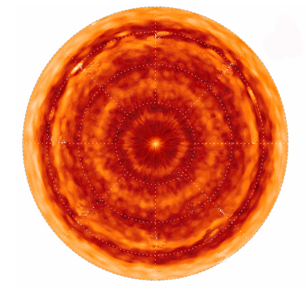
NASA/JPL/GSFC/Oxford University
Cassini's composite infrared spectrometer discovered an unexpected "hot spot" at Saturn's north pole. Despite being in winter darkness for more than a decade, the hot, cyclonic vortex at upon Saturn's northernmost reaches appears very similar to that found on Saturn's much sunnier south pole, and it surprised scientists with its appearance. This image was taken Jan. 3, 2008.
Join our Space Forums to keep talking space on the latest missions, night sky and more! And if you have a news tip, correction or comment, let us know at: community@space.com.
Current page: Page 1
Space.com is the premier source of space exploration, innovation and astronomy news, chronicling (and celebrating) humanity's ongoing expansion across the final frontier. Originally founded in 1999, Space.com is, and always has been, the passion of writers and editors who are space fans and also trained journalists. Our current news team consists of Editor-in-Chief Tariq Malik; Editor Hanneke Weitering, Senior Space Writer Mike Wall; Senior Writer Meghan Bartels; Senior Writer Chelsea Gohd, Senior Writer Tereza Pultarova and Staff Writer Alexander Cox, focusing on e-commerce. Senior Producer Steve Spaleta oversees our space videos, with Diana Whitcroft as our Social Media Editor.